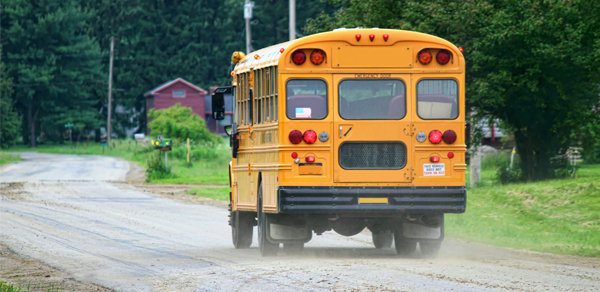Current Student Julia Murphy creates useable document to support education policy on rural schools for Massachusettes House of Reprentatives

This post was written by current student Julia Murphy.
Since I decided to complete my PWE requirement with my current organization, it shaped up to be a ‘special project’ that I dedicated time to during and outside of the workday. The school regionalization conversation in my boss’ district is an issue that I was familiar with prior to starting my PWE, so I felt that by engaging in more in-depth research about rural schools and different collaborative models I could contribute important context to my boss’ involvement and provide useful information. It also doubled as an opportunity for me to learn more about education policy, which I have also been interested in but do not work closely on in my day-to-day. From the outset, I knew I wanted to include qualitative interviews in my project. I felt it was very important to talk to experts, people in the education space, and individuals who deeply understand the challenges that rural schools face. In conjunction with my additional research – which involved combing through the Massachusetts Commission on the Fiscal Health of Rural Schools report from 2022 – the qualitative interviews brought life and perspective to the concepts I was learning about and working to articulate.
The most challenging part of the process has been twofold. First, because the nature of the final deliverable itself is flexible and does not require adherence to a rigid structure, I had to figure out the best and most effective way to communicate the magnitude of information that I was receiving. I spent a lot of time trying to figure out what the best medium to present the information was and what purpose I wanted the final deliverable to serve. I ultimately decided that a comparative analysis of regional and shared-service school models was a sensible way to incorporate the themes from my research and would be a helpful resource for my boss as he continues to be a key stakeholder in local discussions. In many ways, the lack of structure mirrors the daily operations of my job as a legislative staffer. Early on, I recognized the importance of creating structures to keep myself on track and meeting goals and deadlines. I worked hard to implement the same strategies for my PWE, aiming to set up one interview per week and dedicating time to specific tasks such as researching and outlining.
The second challenge was dissecting the data I collected and figuring out how to use it. When it came to the qualitative interviews, I applied the skills we learned in PUBA 719 with Dr. Chris Cody regarding how to identify broad themes amidst an influx of information. Although I used quantitative methods for my research project for PUBA 719-720, the material on effectively conducting and analyzing qualitative interviews was helpful. That course also helped me design my interview questions in a way that directed the conversation in the intended way and helped me get the information that I knew would be beneficial to my project. The sorting through and eventually putting pen to paper was difficult, but I was grateful to have already refined some of those skills through my coursework. The final deliverable encapsulates the aims of my project, highlights key themes, and can exist as a living document that can be added to and edited as the case in my boss’ district progresses. In the interim, I am proud of the work I was able to accomplish in a relatively short amount of time and thoroughly enjoyed the learning process along the way.
